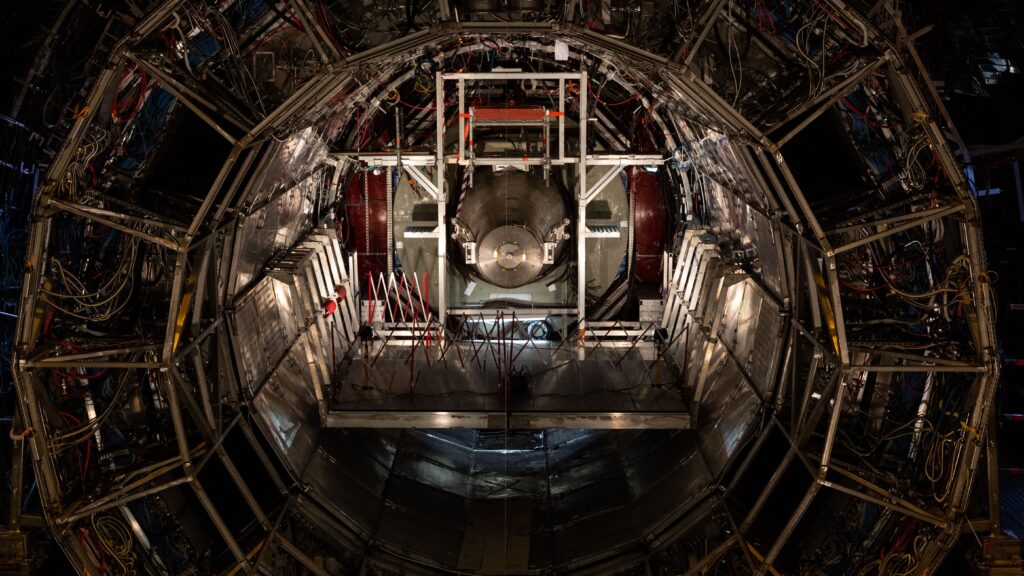
Medieval alchemists were obsessed with the idea of turning lead into gold, a concept known as chrysopoeia. But they may have had more luck swapping out the philosopher’s stone for a particle accelerator, new results suggest.
Scientists at the Large Hadron Collider (LHC) at CERN, near Geneva, have revealed that some 86 billion gold nuclei were created during the accelerator’s second run, between 2015 and 2018 — all from smashing together lead atoms at 99.999993% the speed of light.
The result is a tiny quantity of gold — amounting to just 29 trillionths of a gram — that then collides with the beam pipe and fragments in a fraction of a second. Yet even this near-instantaneous life and death showed up in the ALICE (A Large Ion Collider Experiment) collaboration’s detectors.
“It is impressive to see that our detectors can handle head-on collisions producing thousands of particles, while also being sensitive to collisions where only a few particles are produced at a time, enabling the study of rare electromagnetic ‘nuclear transmutation’ processes,” Marco van Leeuwen, a spokesperson for ALICE, said in a statement.
Drawing upon the philosophical conjectures of Aristotle, alchemists believed that the similar densities of lead and gold were signs that lead was “sick” and could be cured by transmutation into valuable gold. Despite being wrong, the ancient alchemists’ beliefs did contain a nugget of truth: The two metals are very close to each other on the periodic table, with gold having 79 protons — just three fewer than lead.
Related: ‘Beauty’ particle discovered at world’s largest atom smasher could unlock new physics
That means that collisions at powerful particle accelerators need to rip only three protons from lead (alongside some neutrons) to make gold. Shaving off one or two protons, on the other hand, creates thallium and mercury, respectively.
To quantify these metals produced inside the LHC, the physicists used ALICE’s highly sensitive Zero Degree Calorimeters (ZDCs), which measure the protons and neutrons streaming from the billions of particle interactions happening inside the collider every second.
The results showed that, although it’s produced less frequently than thallium or mercury, gold is currently generated by the experiment’s third run at a maximum rate of around 89,000 nuclei per second — nearly double the amount produced by the previous run, due to the third run’s increased energy.
“Thanks to the unique capabilities of the ALICE ZDCs, the present analysis is the first to systematically detect and analyze the signature of gold production at the LHC experimentally,” Uliana Dmitrieva, a physicist at the ALICE collaboration, said in the statement.
“The results also test and improve theoretical models of electromagnetic dissociation which, beyond their intrinsic physics interest, are used to understand and predict beam losses that are a major limit on the performance of the LHC and future colliders,” added John Jowett, another physicist at the experiment.
